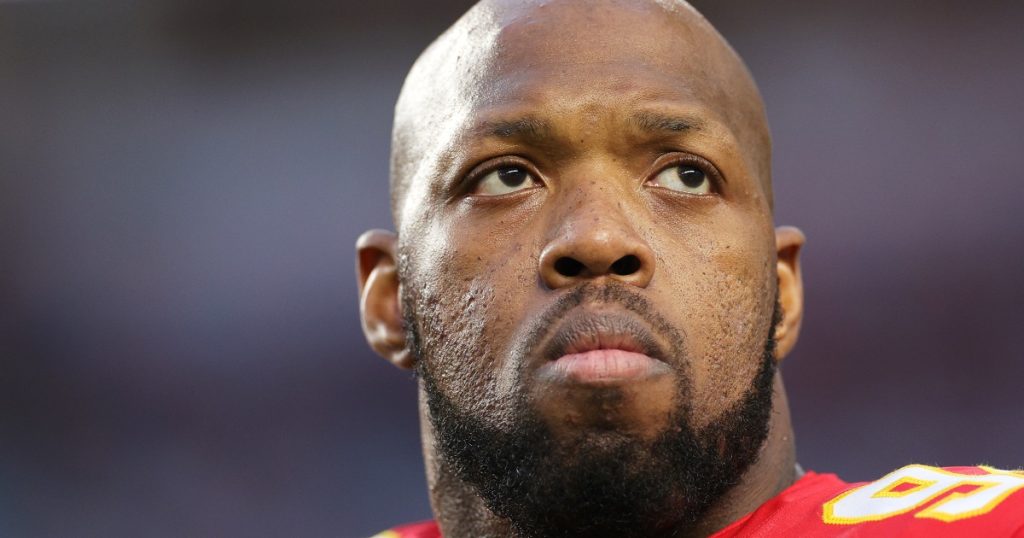Former NFL linebacker Terrell Suggs was arrested in Arizona after allegedly threatening to kill a driver and displaying a gun in a Starbucks drive-thru. The incident, which occurred in March, was captured on dashcam and involved Suggs backing into another vehicle before a heated confrontation ensued. Suggs verbally threatened the other driver, saying he would kill him, and later displayed a handgun from his vehicle. The other driver called the police and Suggs was subsequently booked into jail on charges of disorderly conduct involving weapons and threatening or intimidating.
Suggs released a statement through his spokesperson, Denise White, claiming that he felt he was in danger during the incident. He stated that he was simply getting coffee and not looking for trouble, but felt threatened by the other driver’s actions and was concerned for the safety of himself and his family. Suggs emphasized that he was the one who felt endangered throughout the confrontation. It remains unclear if he has retained an attorney at this time. As part of his release conditions, Suggs was ordered to have no contact with the alleged victim and to refrain from possessing firearms.
Terrell Suggs had a successful NFL career, primarily playing for the Baltimore Ravens after being drafted in the first round of the 2003 NFL Draft. He remained with the Ravens until the 2018 season and was a key player in their Super Bowl win in 2013. Suggs’ arrest in Arizona has raised concerns about the former athlete’s conduct off the field and the potential legal consequences of the alleged threats and gun display. The incident has garnered media attention and raised questions about how professional athletes are viewed and held accountable for their actions outside of sports.
The circumstances of Suggs’ arrest, particularly the display of a weapon in a public setting, have sparked discussions about gun safety and responsible ownership. The incident serves as a reminder of the potential dangers and consequences of escalating confrontations, especially when firearms are involved. Suggs’ claim that he felt threatened and feared for his safety highlights the complexities of self-defense and the need for individuals to prioritize de-escalation techniques in such situations. The role of law enforcement and the legal system in addressing threats and ensuring public safety are also being scrutinized in light of this incident.
As the legal proceedings unfold, it will be important to consider the implications of Suggs’ actions and the impact they may have on his reputation and future opportunities. The seriousness of the charges he is facing, including a felony for disorderly conduct involving weapons, could have lasting repercussions for the former NFL player. It remains to be seen how Suggs will navigate this situation and what steps he will take to address the allegations against him. The incident has raised broader questions about the intersection of celebrity status, personal responsibility, and the law, prompting reflection on the expectations placed on public figures, including athletes, in society.


